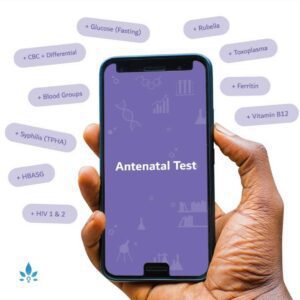Postpartum red Flags for new Moms


When you leave the hospital after delivering your baby, your doctor or midwife will send you home with paperwork that discusses what normal and abnormal recovery looks like. In case you misplace it (or you want to study ahead of time!), here are some of the postpartum red flags that should trigger a call to your provider’s office:
- Heavy vaginal bleeding—Bleeding is normal after having a baby, but it should not be an amount where you are soaking a regular pad in one hour for two hours straight. Large clots are also a reason to call your doctor. Additionally, if you are dizzy or pass out because of the amount of bleeding, you need to be seen right away.
- Pain—Discomfort is common whether you delivered vaginally or by C-section. However, if the routine medications you were sent home with are not helping, that may be a sign you are not healing normally. Let your doctor or midwife know—they can either suggest some measures to try at home, or they may ask you to come into the office or emergency room to be evaluated.
- Fever—A temperature above 100.4 is a reason to call your provider. It could signal the onset of a urinary tract infection, mastitis, or uterine infection, among other things. These are all easier to treat when the diagnosis is made sooner rather than later, so don’t put off that phone call!
- Leg swelling, chest pain, or shortness of breath—These can all be a sign of a condition known as deep vein thrombosis when blood clots form in the veins of the leg that can spread to the lungs and cause a pulmonary embolism. This can be a life-threatening condition. While all women have some swelling postpartum, it is most concerning if it is just one leg and/or is associated with these other symptoms.
- Odor—If your vaginal discharge has a foul odor associated with it, this could be a sign of an infection in the uterus or vagina. Drainage from a C-section incision that has an odor can also be a sign of wound infection. Do not try home remedies such as creams or douches as these can only exacerbate the problem.
- Problems going to the bathroom—While slight constipation and some urine leakage are normal after having a baby, it is not normal to leak large amounts of urine all the time. The complete inability to have a bowel movement (or extreme pain while trying) is also something your provider can help you out with, so be sure to let them know.
- C-section incision problems—In addition to the issue with odor mentioned above, it is also not normal for your incision to become red or hard, or for it to separate. It is really important to not try to fix this on your own as it often makes the issue worse.
- Breastfeeding issues—While breastfeeding can be uncomfortable at first, excruciating pain that lasts a whole feeding is absolutely not normal. Neither are red streaks on the breast, breast lumps, or damaged nipples, which may be signs of mastitis, plugged ducts, or poor latch. Be sure to reach out to your provider or lactation consultant!
- Feelings of sadness, despair, or suicidal thoughts—This can be a sign of postpartum depression/anxiety or postpartum psychosis. You should absolutely not suffer alone and need to let someone know immediately.
Sources:
- The American Congress of Obstetricians/Gynecologists
- Your Pregnancy and Birth
- 4th ed.
Powered by Bundoo®













































